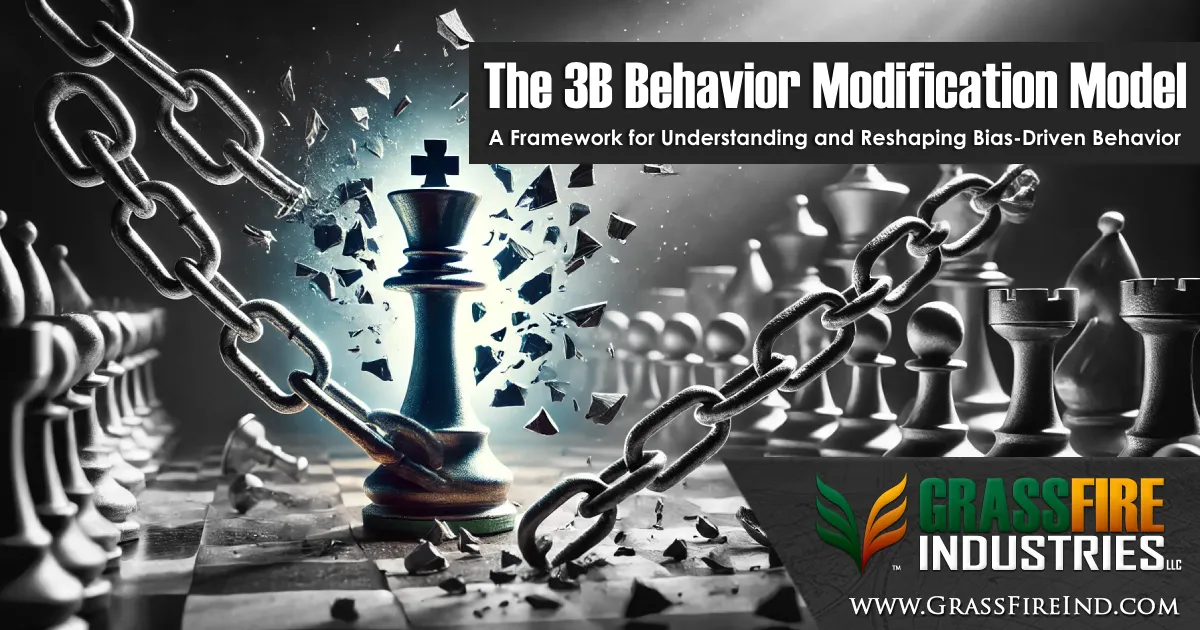
ATD (Association for Talent Development) recently outlined three emerging leadership development trends for 2025: personalization, measurable impact, and the cultivation of emotional intelligence for hybrid leadership environments. These are meaningful observations, and I couldn't agree more. Of course, it seems the leadership development field is catching up with ideas that GrassFire operationalized from the beginning. The GrassFire approach...

“Follow your dreams” is an often overused mantra of social media influencers and self-help gurus selling you on a better life. But if it worked, wouldn’t more people be living their best life? The truth is that having a dream or a vision is only a small part of the solution. Remember that heroic tales don’t come from those who dared to dream—they come from those who dared to try. Action is necessary. But before you try to achieve some...

ORCID iDAuthor Affiliations: GrassFire Industries LLC, The National Leaderology Assn.© 2025 Dr. David M Robertson. Published by the GrassFire Industries LLC. This article is Open Access under the Creative Commons Attribution-NonCommercial-NoDerivatives 4.0 International License (CC BY-NC-ND 4.0). This license allows copying and redistribution in any medium or format for non-commercial purposes, provided no modifications are made, appropriate...

The advent of social media and search engine algorithms has transformed how individuals consume information. While these tools promise efficiency and personalized content, they also exacerbate cognitive biases by creating echo chambers and filter bubbles. By selectively exposing users to information that aligns with their existing beliefs while filtering out dissenting views, these algorithms reinforce confirmation bias and contribute to...

Communication, as a core competency in leadership, extends far beyond simply speaking or writing effectively. For leaders, communication encompasses a wide spectrum of skills and processes that influence not only how they interact with others but also how they engage with themselves and interpret their environment. Understanding these dimensions is essential for leaders who aim to inspire, align, and mobilize individuals or teams toward a...

No doubt, the world is changing rapidly, and it seems that organizational priorities are shifting. As a result, CEOs and leaders often use this as an excuse when facing the challenge of keeping their teams motivated while maintaining organizational growth. Of course, time is always a factor, and leaders often have to juggle priorities. This typically results in taking shortcuts. However, while these leaders have the best intentions, they...

Unfortunately, most people navigate their decisions and daily lives guided by 'perception'—essentially, feelings-based responses to situations. These decisions are driven by emotions, reactions, and impressions rather than objective facts, often leading to poor or underwhelming outcomes. While perception may seem intuitive, and even promoted in many coaching scenarios, the truth is that it often leads to distorted thinking because emotions...

Learned helplessness is a terrible condition where individuals believe they have no control over their circumstances, leading them to stop trying to change or improve their situation. This mindset often develops after repeated exposure to adverse events or environments where efforts to change the outcome consistently fail. Over time, the individual learns to believe that no matter what they do, they cannot influence the outcome, leading to a...

Epistemic Rigidity is a theoretical framework that explains why individuals and groups struggle to update their knowledge and discard outdated information. This framework integrates various cognitive biases, including the Einstellung effect, the Einstein effect, the Dunning-Kruger effect, and anchoring bias. Additionally, it encompasses factors like confirmation bias, motivated reasoning, cognitive dissonance, and heuristics. These biases and...

Recently, a student forwarded an article about leadership and development. The request was to evaluate the article and share my thoughts because he felt that the author got a few things wrong. Indeed, the Forbes article "Unlocking Hidden Potential In Next-Gen Leaders: Beyond Traditional Leadership Development" brings to light several crucial aspects of contemporary leadership, but it also leaves plenty of room for deeper exploration, at least...


